Armin Eberhard, Renaissance Monarch: «All requests should be treated seriously and reacted to sincerely»
Hard time has come for Russian business hotels. As they expect a crisis and suffer from tense geopolitical situation, the main customers, corporations, cancel events they have planned, more and more often, which is bound to affect hotel occupancy rates. BBT Russia has talked to general manager of one of Moscow’s largest conference hotels, Renaissance Moscow Monarch Centre, about the ways to overcome difficulties, new niches of the hospitality market and efficient ways of staff motivation.
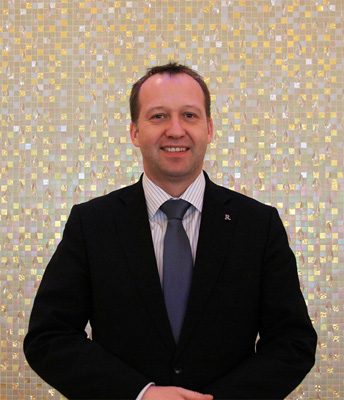
— Mr Eberhard, do you think Moscow hospitality market is following European development trends? Or do we go our own way, as usual?
— Of course, Moscow has its own development vector. The main feature is the fact that it is the largest metropolis on the continent, so things that are good for any other city just do not work here. I was very much surprised with the new look of the capital — pedestrian zones, English signs. Of course, we want changes for the better to take place immediately, but things do not just happen.
If we speak about hotel business, Moscow badly needs skilled service staff, the understanding of service in the hospitality industry. Moreover, it refers to the generation that is working now and to the younger generation as well. There is the lack of the right attitude towards customers` needs and wishes and the «customer is always right» rule.
— How has Renaissance Monarch changed since you took the general manager position?
— At that time, a year and a half ago, it was not just my first visit to Moscow, and the first acquaintance with the Renaissance brand, but also my first general manager position. Broadly speaking, a lot of things happened to me at once.
Nowadays I can say for sure: the market has changed. Last year was the most successful year in the history of Renaissance Monarch, from the point of view of average occupancy and the number of corporate events we arranged. They included business conferences devoted to the Olympic Games in Sochi that were held for 11 months in a row. This experience was very valuable for us. Due to unique conference facilities we became one of the leading business hotels of the capital.
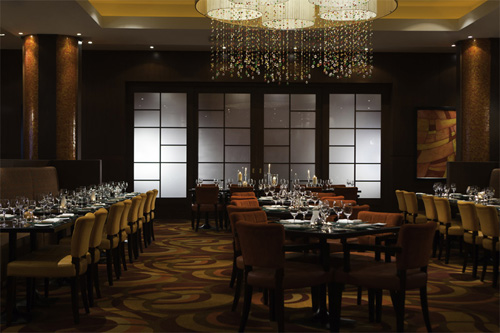
— Has the complicated political situation affected the business segment of the hospitality market more than other segments?
— After the Crimea referendum in March the situation got rather tough, especially for business hotels. Our main niche is conferences and meetings, after all, and we are focused at corporate buyers.
Renaissance Moscow Monarch Centre experienced a considerable drop in demand: many conferences, congresses and business meetings that had been planned beforehand were cancelled. We were told that organizers were expecting a crisis and postponed all the events till tings got better.
At first we even had an impression that we had lost this business. But we started looking for alternative development strategies at once. We focused at individual businessmen and have been a success so far — we are facing a considerable growth in the number of such guests.
— What can be the reason for it?
— I think, recommendations of travel managers from companies we used to deal with are working for us. Another possible cause is the large number of free rooms, that you can now book much easier, sometimes even on the day of your arrival, despite visa problems. Last year booking in the middle of the week was hardly possible, and now it is much easier now. Moreover, it often goes about long-term stay.
For example, a managing director of a large international company stayed at our hotel earlier this year. He came to Moscow to open a new office for his company. As a rule, it is a long-term affair that can last for a year or even more. He may not bring his family with him, but he will definitely visit the city twice a month for a week. It is obvious that you will not rent a flat with a travel schedule like that, because someone has to look after it. An ideal variant is to stay at a hotel and to go to work from here.
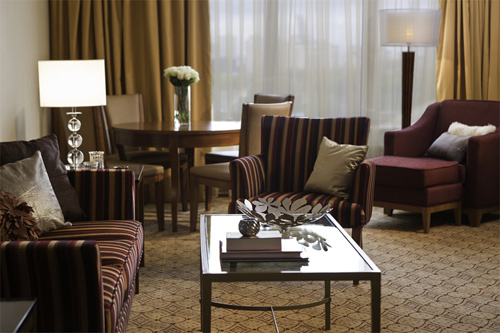
A long-term stay like that from six to twelve months mainly for top managers has become the new niche that we have successfully occupied in Moscow hotel market. From this point of view we are unique for corporate customers, because other hotels do not provide a service like that.
We even have a special type of rooms — apartments for a long-term stay. Each is almost 70 sq. meters in area and has a kitchen and a hall. You should agree that an opportunity to cook at home in intimate surroundings is an important part of any long trip. The demand for such rooms is very high.
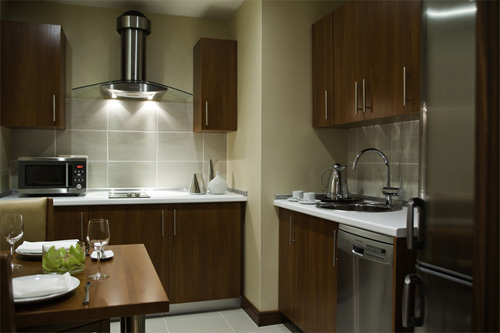
— So conference halls are not used?
— I can not say that they are absolutely out of use, but the situation has changed, of course. We greatly depend on large events. You must admit that you can find a meeting room for ten persons in any hotel, but the number of Moscow hotels that specialize in events for 500 persons and more is limited. I can only name a couple of such hotels.
Our corporate guests used to book large halls for large-scale events, and now individual businessmen come to our hotel to have business breakfast one on one with their colleagues. In such cases price factors and investment risks are much lower, because it is not a congress for 500 participants that you have to accommodate somewhere, provide with meals and pay a deposit for them. It sounds logical, but it is of little help for us, of course.
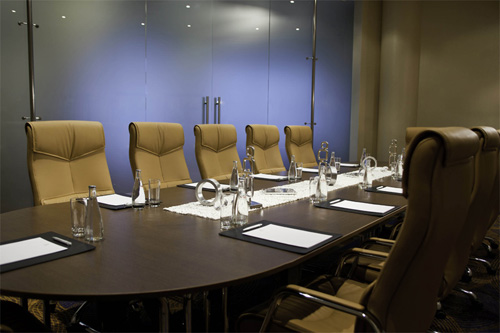
— Has this fact shifted the focus considerably and changed roles in Moscow hotel business in general?
— Indeed. Now all the hotels have started competing for the same customer segment. The first thing that Moscow guests require is a hotel in the very city centre within walking distance from the places they would like to visit. If we speak about the best price-quality ratio, hotels that are situated at the Garden Ring should cut their rates considerably in order to be able to compete with hotels inside the Garden Ring. If an office and all the conference facilities are just round the corner, it is an unbeatable advantage, and it is all much more difficult in other cases.
Our hotel is at the Third Transport Ring, so we are completely out of the search radius of individual visitors and business travellers who come here for sightseeing.
— What are you going to attract guests with if your location is against you?
— With conference facilities and modern technologies! We also offer large rooms 35 sq. metres in area and more and a very cozy Allegro lounge for 85 persons with a sushi bar — people know about it, tell each other about it, and this is the most effective advertisement. Our spacious wellness centre and a gym help us compete with hotels that are in the city centre. Nobody comes to Moscow for one night only, it would be unreasonable. Guests usually spend at least a day here, sometimes even three days, and this time is quite enough to see the true value of our hotel.
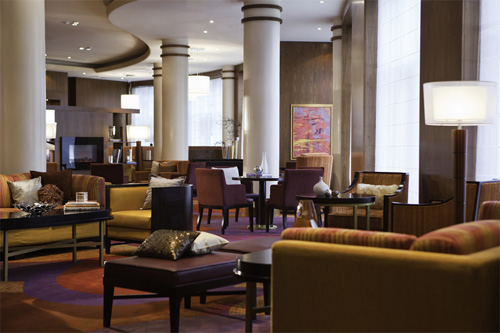
Maybe it is a topos, but our service is at the highest level possible. A traveller will definitely appreciate it if his requests are treated with understanding and taken seriously. Especially if we speak about a business traveller who has been to many hotels, has seen a lot and can make a comparison. Guests of this kind can almost always determine what we do better than the others and what not. All requests should be treated seriously and reacted to sincerely. And the staff should be taught this attitude, which is hard, as we have 340 employees. To make them think in the same way means to have frequent trainings and talks.
— How do you establish communication with employees? Please, share your secret.
— It is part of the brand’s corporate culture, just like in other chain hotels. Actually there are not so many ways to motivate employees: you can motivate them financially, let them clean rooms of higher quality or, if it is a sales manager, conclude a contract on better conditions.
But you can follow another way as well: study carefully whether employees’ requests are fulfilled, whether they have all the necessary equipment. You need to listen carefully and try to understand what they really need to work efficiently. Then your staff will feel they are taken seriously.
We have corporate breakfasts every month and every department sends its best employee to it. HR-department representative, me and this lucky employee have breakfast together and talk about the company’s plans, find the ways to improve the situation. If a person realizes that the future of the company and its well-being in general depend on his decisions, he will work better. So the recipe of successful management is obvious — just listen carefully.
A manager should always find time to thank all the employees for their good work. Moreover, you should not say «Thank you, very good, well done, but you could do better here and there», but you should only say «Thank you, very good, well done». A simple «Thank you» often influences people more than a lot of money. Especially when we work as hard as we can and do the impossible.
Last time I did it today. But I did not really succeed — I just mumbled something in Russian. But I think everyone understood what I wanted to say.
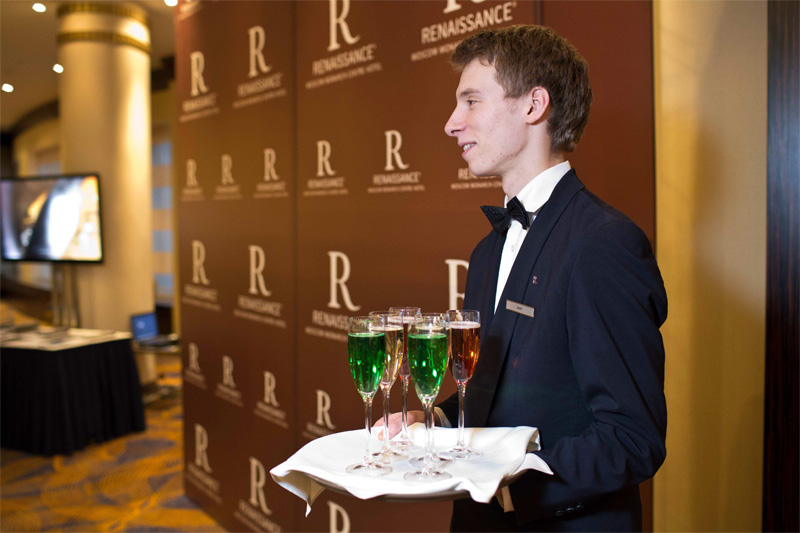
— Have you managed to get rid of some stereotypes and biases against our country for a year and a half you have been living in Russia? Some things may have become a real surprise for you, haven’t they?
— Indeed, no matter where you go, you are full of all kinds of prejudices and expectations. On the other hand, a new country means a new opportunity to get rid of stereotypes and be open, as much as possible.
For example, I was convinced that it would be hard to settle down in Moscow. The city is so huge and it does not have the need for a foreign general manager to come and arrange everything here — no, it is a self-sufficient metropolis with active business life.
I admit that I expected Moscow to be a little bit old-fashioned and non-technological. But the real situation turned out to be much better: I have obviously underestimated rapid changes that have taken place here! Not in all areas, of course.
Another common misconception of any large city is a high level of violence, noise and danger. When I came to Moscow, I realized that it was much safer that I had imagined. The situation is in general very similar to that in New York, Paris or Sao Paulo. I lived in London for 11 years and I can tell you a lot of stories that happened to me in the street, but nothing bad has happened to me in Moscow so far. And it is great.
Interviewed by Serafima Skibuyk
- Partners
-
Press
-
Logo ABT
-
 Download in PDF
(264Кб)
Download in PDF
(264Кб) -
 Download in EPS
(273Кб)
Download in EPS
(273Кб)
-
- Photo library
- Educational session
-
Logo ABT
- Hotels
